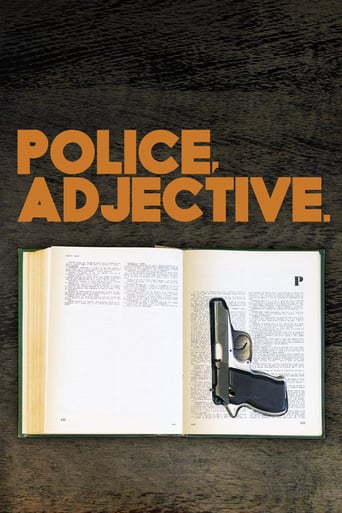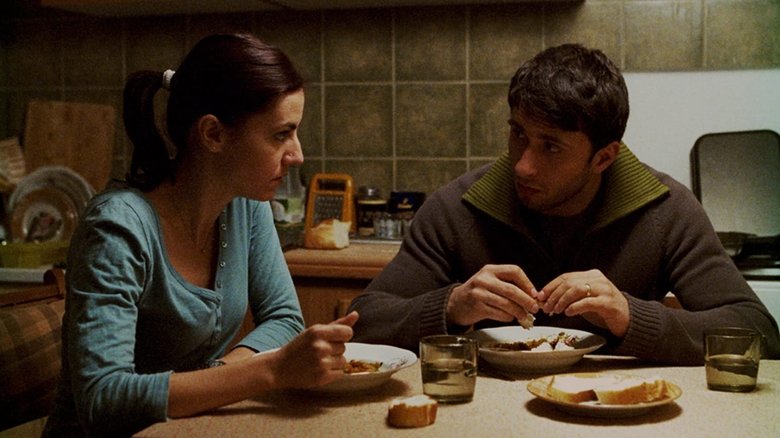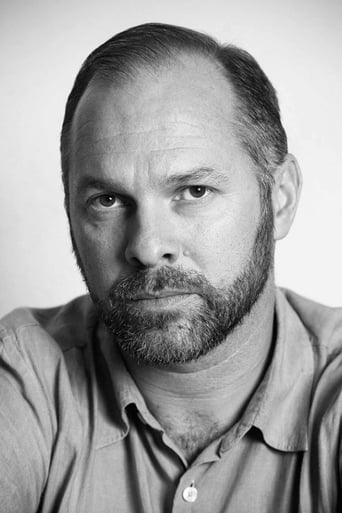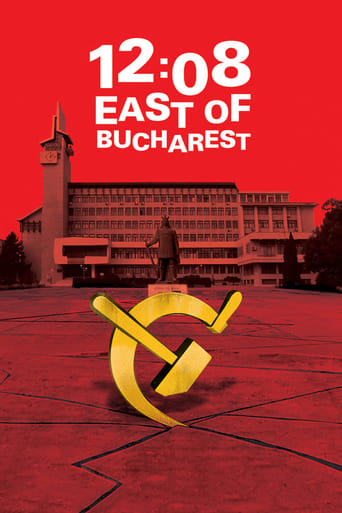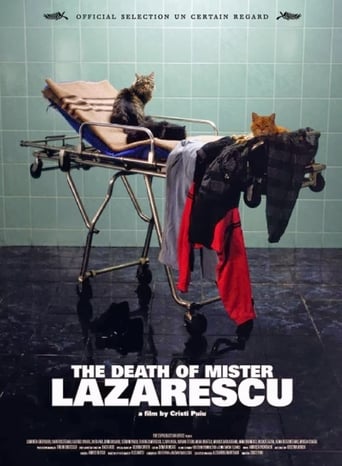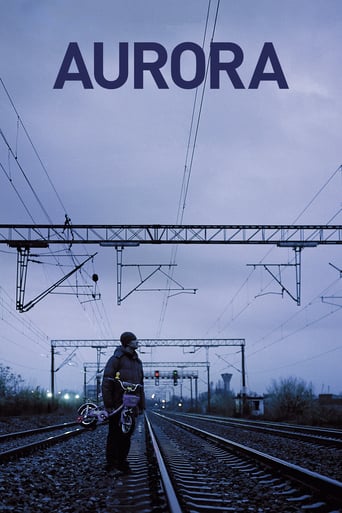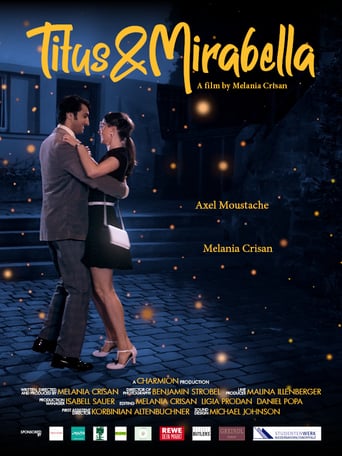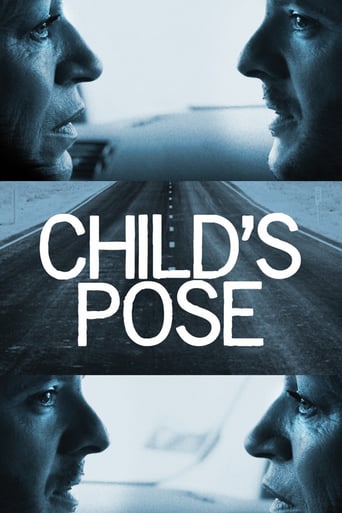Police, Adjective (2010)
A cop named Cristi must go undercover to trail teen Victor who is suspected of selling pot in the north-eastern city of Vasliu.
Watch Trailer
Cast


Similar titles
Reviews
Perfect cast and a good story
I like movies that are aware of what they are selling... without [any] greater aspirations than to make people laugh and that's it.
Yo, there's no way for me to review this film without saying, take your *insert ethnicity + "ass" here* to see this film,like now. You have to see it in order to know what you're really messing with.
It's funny, it's tense, it features two great performances from two actors and the director expertly creates a web of odd tension where you actually don't know what is happening for the majority of the run time.
Police, Adjective is about Cristi, a cop, whose conscience interferes with his police work. He does not want to arrest a pot-smoking teenager he has been tailing - who may or may not be dealing - because the drug laws will soon be revised. Good golly, Miss Molly, if every cop's conscience dictated his/her actions - not to follow police procedures and the oath he/she took - there would be chaos in every town and city throughout the world. Despite that cops all over the world take an oath to uphold the law, writer/director Corneliu Porumboiu thought he had a story to tell anyway.How does Porumboiu tell his story? With too many unnecessary, long, drawn out scenes. It's as if Porumboiu did not consider what he was focusing upon in his scenes to help him determine what the length of those scenes should be. And, so, what could have been told in two minutes with a clock on the wall, is told in six minutes. We get it, Mr. Porumboiu! Really, we do!The final scene in the movie is between Cristi and his superior, Anghelache, who puts a dictionary in Cristi's hands and makes him look up several definitions. The scene goes on way too long. It's like looking into a grade school classroom, except the student is a cop. Ouch! Anghelache's point is lost because he spends too much time making Cristi look up too many words. Words one would have though a grown man would know the definitions of already. On top of that, a cop has to be reminded that the law is the law? The only thing I appreciated about Police, Adjective is the simplistic camera shots. If Porumboiu had shown us that the kid's mother was an invalid and living in squalor - and why the cop all of a sudden has a conscience - then I would say conscience vs. police oath might be a good story. But he didn't, and so his story and his too many lengthy scenes makes Police, Adjective a wee bit too tedious and stale to enjoy, or believe.
Police, Adjective This is an absolutely brilliant film. Many films have been made in Germany or the Czech Republic or Spain or various Latin American countries, and so on and on, about periods of interregnum between one form of government and another. Writer/Director Porumboiu goes right to the details in Romania. He takes the smallest possible case, an undercover officer checking out a high-school drug dealer, and makes us wonder about the biggest metaphysical situations involving law and justice. Wisely—almost incredibly—Porumboiu sets aside macropolitics and doesn't make a partisan or political film. Instead, he forces us to imagine the links between private behaviour and philosophical concepts.Many people are constantly writing that the movie is too slow or too long. Hell, I say that about car-chase movies that are 90 mins. of explosions or 130 mins. of James Cameron's computer-animation teams. There is not one wasted second in this film. It is not indulgent in the slightest. There are no car chases. This is a movie about a narc tailing a high-school kid. That's what it is. The only time the movie really really drags is when Cristi, the narc/undercover guy, is watching the home of the alleged squealer. That does go on for a long time, but, structurally, it makes sense, and Porumboiu leavens it a bit by making Cristi get tea from a nearby shop and discuss what he's doing in a communist-realist way that chips in to the overall narrative.The way Porumboiu binds the film together is admirable—we see Cristi early on telling his overweight colleague that that colleague just can't play soccer with them—those are the rules. Then Cristi gets told by the prosecutor that he isn't entitled to comment on laws. And then there's Cristi's girlfriend (the rules of language), and Zelu (sees all laws, accepts none, really) and Cristi's boss, Angelache (the rules of law, expressed by language).The endless opening and closing of doors, the bureaucracy, the people who think their lives are so much more important than yours, is compelling. Cristi never really imposes. He just has a sense of what is right (and he is a policing figure). His overweight colleague puts upon him. His lazy (political but useless) colleague Zelu is of no help. He goes to the prosecutor (Marian Ghenea—in a truly wonderful performance) and is granted a promise that we later learn has probably been betrayed. Costi, Vali, Doina—all are unwilling to act, knowingly or unknowingly, towards justice. Part of what made The Death of Mr Lazarescu by Puiu so compelling was precisely the fact that one knew that, whether or not you had the greatest American health insurance in the world (or even the most money in the world, maybe), or you lived in a country with one of the greatest public health insurance programs there were, you still were not immune to basic human failings. If Puiu did that with health care and medicine, Porumboiu does that with law and justice and society. What Poromboiu shows us, relentlessly, is that our lives are contingent upon others, and if others treat us the way we treat them, well. . . .There just isn't a bad performance in this film. One would finally have to say that Dragos Bucur is effective in his impossible role. He is the hunched anti-hero post-communist but still communist narc. His girlfriend, Anca, can talk of anaphoras, but when he tries to express what he knows is right, the state, in the person of well-known Vlad Ivanov, gets Cristi out a dictionary from which he cannot escape. Dictionaries, after all, like language, are arbitrary documents. A "tree" in Brazil means something entirely different from a "tree" in Siberia. Language is arbitrary and contextual, and this sophisticated film works with this knowledge.This is a carefully filmed movie that rarely draws attention to itself. As far as I can tell, every time Cristi is shadowing someone, the effect is very authentic. There are a lot of long shots. Close shots are sparing. Office shots are always as they should be or oblique. When Cristi gets back to his flat, the way Porumboiu films it so that we could only ever see the hallway and never a bedroom or any kind of intimacy at all is very, very wisely done. In some respects, Porumboiu boldly refuses to answer American hopes. He gives us no cheesy intimacy, and keep us always focused on Cristi, the man outside—outside shadowing a kid who may be a drug dealer, outside the changing Romanian legal system, outside his girlfriend's perfect—but changeable—command of language. Maybe Anca is the one who really ought to be determining things, for images are symbols, and symbols are images.As for the climactic scene, 20 mins. of pure dictionary: I can't think of 20 other minutes I'd love to watch more, from _The Getaway_ to _Unforgiven_. The climax of _Police, Adjective_ is utterly riveting, if you've grasped what has gone on before.This is just an all-around great movie. At times, you can sense opportunities for indulgence, but Porumboiu never takes them. I hope he'll continue not to.Yes, it's a given that people not from the U.S. may not understand movies from other places. But I'm getting a little bit tired of this. I can watch movies from Korea or Argentina or just about any country in the world and enjoy them and understand them and feel my way into them and engage with them intellectually and emotionally.Police, Adjective is definitely going to go down as a very important film. It comprises the human and the metaphysical the while excising the obvious political. That makes it political. This is an important film. Negative reviewers desperately cling to seeing "police" as a noun, and that is not what this film is about. ww
This is surely the most boring and pretentious movie I have ever watched. Even for the artsy standards you can encounter at a festival such as Cph Pix, I found Politist to be a tedious experience. Luckily I persuaded my friend to leave after 70 minutes, at that stage I was outright puzzled by how such a boring piece of cinema could have won such critical acclaim. In fact, I think it is because the movie naturally makes one reflect and meta-analyze about the movie as it unfolds - it is simply not possible to merely enjoy the movie, relate to the characters, get moved by the story - the only way to cope with this miserable movie is to start thinking about it as it unfolds. The story is simple and I suppose the director and proponents wants to make a Kafka/Camus-kinda point about the absurdity of life in some bleak post-communist provincial city in Romania. How this cliché of a movie can be considered prober art and/or entertainment by any intelligent human being is simply beyond me. My advice: don't see it unless you want to see a text book example of boring and pretentious cinema.
loved it, so simple, yet meaningful, real-life like, and profound. Enjoyed every minute of it. The movie is full of peace, love! Any person who loves to look deeper in movies and scripts will immensely enjoy the experience.This movie makes you think that how in studio movies, we have moved away from real life and into make-up, gadgetry, fancy cars, fancy houses and in the process we loose the real feeling that makes a movie close to life. The movie is set in no pretentious neighborhood, no fancy houses, cars, dresses and gadgets. Because all is real.Plot: a police detective is faced by a situation where his moral voice does not allow him to follow orders and become a party in the arrest of some kids who smoke hashish. He believes that if he became a party to the arrest, his will never be able to walk with clear conscious. The movie is all about how he does not want to do something which he thinks will haunt him for the rest of his life.

